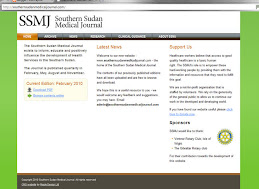The Blog went well past the 500 hits today so thank you all, it’s good to know people are interested in our little adventures.
We had quite a full but also productive day yesterday. We'd prepared an afternoons worth of presentations and practice scenarios on approaches to the recognition, assessment and early management of the sick/unstable patient. This was very much aimed at the junior doctors here, but there were a lot of consultants from the different specialities there too, probably around 30 in all.
Overall the afternoon went really well. We were just teaching the real basics (the ABCDE scheme, Airway, Breathing, Circulation, Disability, Exposure) which hopefully will provide a good foundation for all that comes next from us and others. We made the lecture style quite interactive which they really warmed to. (I get the impression that the usual method of medical education is much more formal...)
At one stage I demonstrated the scheme in real time on a model patient (Dave) and the challenge was that I had to detect the pathology the audience had picked for him, and unknown to me. This lead into a section to round things off where we ran a few simple ALS/ATLS style practice scenarios in small groups to check they could put it into practice. To be honest this had somewhat of a mixed response – everyone tried which was good and some did well, but some of the doctors (at SHO level) really struggled. If normal undergrad teaching is formal / by humiliation and an interactive lecture is rather radical I reckon the concept of actually role playing scenarios was way out of their comfort zone which may have been part of the problem. Medical education is challenging even within a cultural framework that’s very familiar, let alone trying to address the issues of cross-cultural contextualisation. It does however pose us the interesting question of how do you make it even simpler than ABCDE? (That’s not a rhetorical question by the way, I’d love to hear suggestions.)
I think it all adds up to the realisation that these things are going to take time, hard work, perseverance and patience. None of this should come as a surprise really, so I suppose we’re just going to have to stick with it re-emphasising the basics, and try to provide positive role models in the way we go about our clinical work.
Overall as I mentioned the whole thing went down really well. I think it helped show them that we were serious about being here and the contributions that we can make, even as non-specialists. The consultants in particular absolutely loved it, and want to make it a weekly Saturday afternoon inter-departmental teaching session, so I think we’ve just inadvertently started Grand Rounds in JTH!
James
We had quite a full but also productive day yesterday. We'd prepared an afternoons worth of presentations and practice scenarios on approaches to the recognition, assessment and early management of the sick/unstable patient. This was very much aimed at the junior doctors here, but there were a lot of consultants from the different specialities there too, probably around 30 in all.
Overall the afternoon went really well. We were just teaching the real basics (the ABCDE scheme, Airway, Breathing, Circulation, Disability, Exposure) which hopefully will provide a good foundation for all that comes next from us and others. We made the lecture style quite interactive which they really warmed to. (I get the impression that the usual method of medical education is much more formal...)
At one stage I demonstrated the scheme in real time on a model patient (Dave) and the challenge was that I had to detect the pathology the audience had picked for him, and unknown to me. This lead into a section to round things off where we ran a few simple ALS/ATLS style practice scenarios in small groups to check they could put it into practice. To be honest this had somewhat of a mixed response – everyone tried which was good and some did well, but some of the doctors (at SHO level) really struggled. If normal undergrad teaching is formal / by humiliation and an interactive lecture is rather radical I reckon the concept of actually role playing scenarios was way out of their comfort zone which may have been part of the problem. Medical education is challenging even within a cultural framework that’s very familiar, let alone trying to address the issues of cross-cultural contextualisation. It does however pose us the interesting question of how do you make it even simpler than ABCDE? (That’s not a rhetorical question by the way, I’d love to hear suggestions.)
I think it all adds up to the realisation that these things are going to take time, hard work, perseverance and patience. None of this should come as a surprise really, so I suppose we’re just going to have to stick with it re-emphasising the basics, and try to provide positive role models in the way we go about our clinical work.
Overall as I mentioned the whole thing went down really well. I think it helped show them that we were serious about being here and the contributions that we can make, even as non-specialists. The consultants in particular absolutely loved it, and want to make it a weekly Saturday afternoon inter-departmental teaching session, so I think we’ve just inadvertently started Grand Rounds in JTH!
James






















